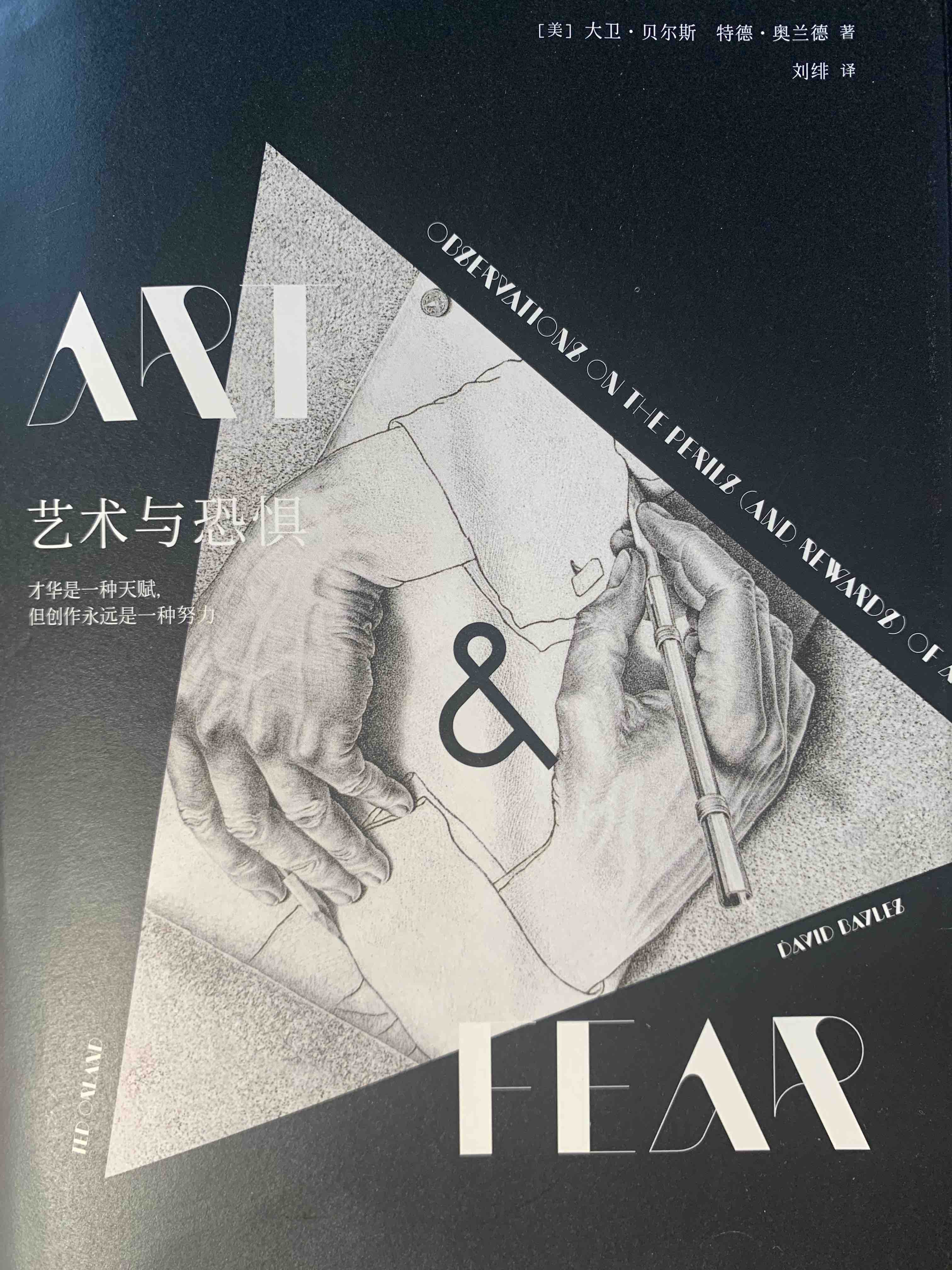It took me two weeks to finish this book, Art and Fear, which deals with the problems of creating art, as opposed to Hackers and Painters, which deals with the dilemmas of exploring one’s own field and how to deal with them.
I’ve extracted some of the key phrases so that I can try my own creative path over and over again in the future.
-
There is a fundamental difference between creating and appreciating a work of art: the viewer is supposed to be moved by the work, enjoy it, or spend time with it, while you are supposed to learn how to create.
-
There is a fundamental difference between giving up and stopping creating.
-
Once you start creating, the imagination takes over, and a work is completed as details become clear.
-
To be successful, one must learn to cope with the uncertainty that inevitably accompanies creation at all times.
-
The only way to create good work is to work a lot, and then to eliminate and discard what doesn’t fit your style, which is feedback and the most direct way to understand your own philosophy.
-
You should be concerned with how you create, not how hard or easy it is to create.
-
If you want to create consistently, you must realize that perfection itself is a flawed, contradictory concept.
-
The more you need to create, the higher the risk of stopping.
-
Expectations based on illusions often lead to disillusionment.
-
All the knowledge you want to learn exists in your work, you only need to explore your own work carefully.
-
Only the person who is committed to his or her own creative vision can come to the realization that the public acceptance of a work of art does not depend on whether or not it can be seen as a work of art, but whether or not it can be seen as your own creation.
-
True communication can only take place between you and your work.
-
Artists with a good lifestyle have practical principles and methods that allow them to continue to create.
-
Each new work you create expands our reality, which continues to expand.
-
The skills taught are only meaningful if they integrate life and art making, enabling students to achieve their artistic goals after years of hard work.
-
Learning art should be about creating.
-
Learn how to create work that is meaningful to you.
-
You don’t learn anything useful by looking at works of art, at least not what you can use to create them.
-
The best books: biographies and books that discuss the process of creating artworks.
-
Works that express new ideas are far more interesting than those that show off technique.
-
If you don’t know the woods and the trees, you can never fully understand one or the other.
-
Artists and scientists are convinced that art and science share a common ground at a deep level.
-
The meaning of the world is created, not discovered.
-
In the process of creating art, you demonstrate what is important to you.
-
The creation of art depends on your observation of things: about yourself, your approach and your subject matter.
-
It is only when we set out to create our own work that we rediscover our fundamental connection to other artists.
Anyone who reads this article is encouraged to read this booklet in its entirety if you wish to engage in creative activity.
